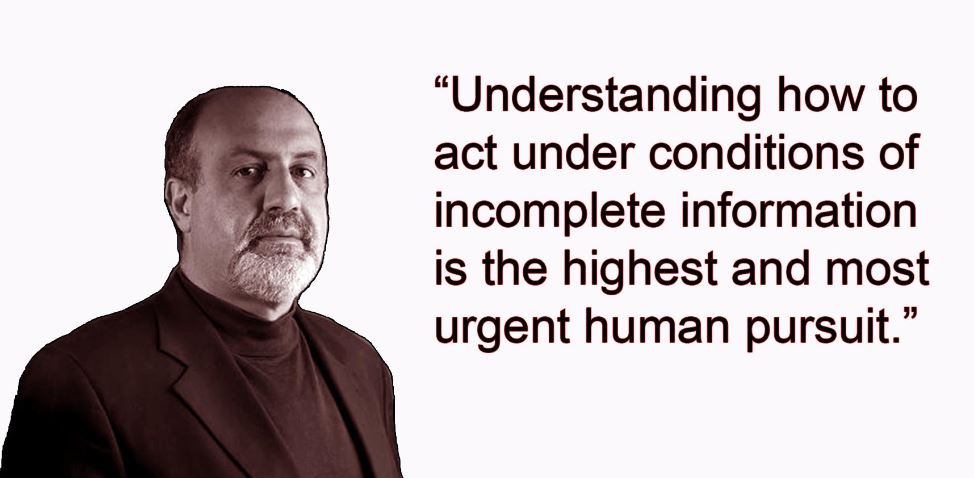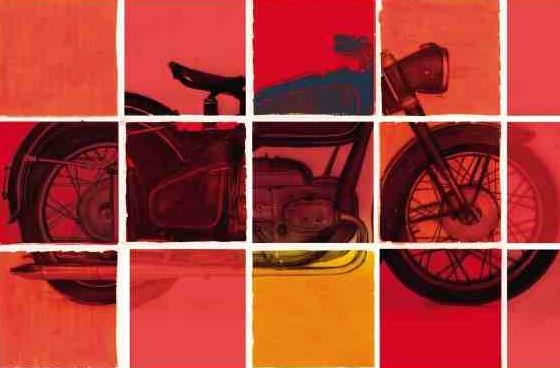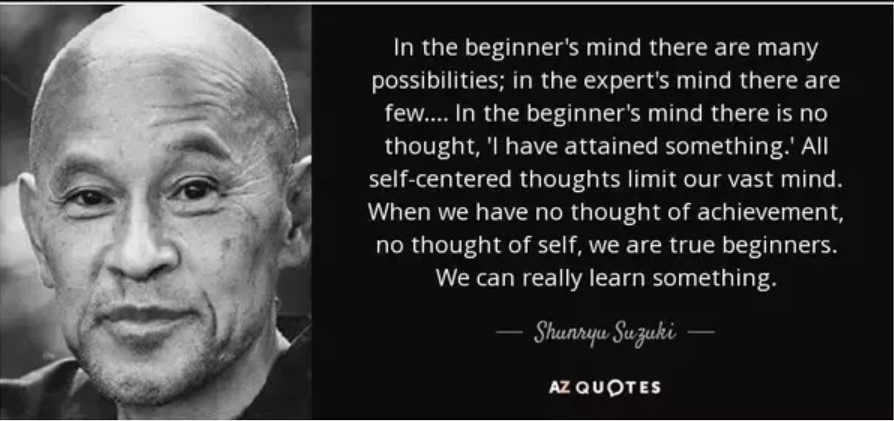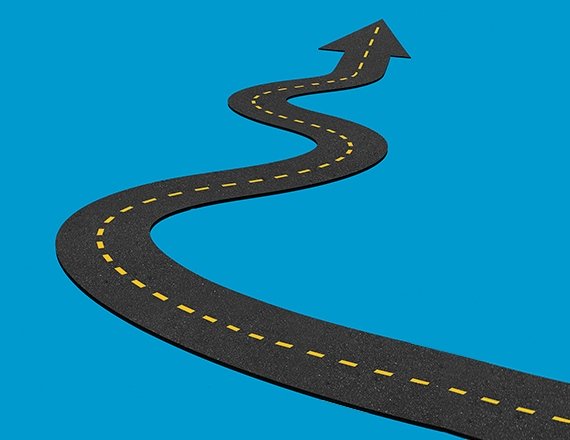Trying Too Hard
6 Tips To Help You Be More Effective
Trying Too Hard - Setting The Scene
Do you think you might be trying too hard?
I know that I have been. I have lived most of life on the basis that the more I know and the more I do then the better my results will be.
We are brought up to believe that we get what we want in life as a result of what we do, by the actions that we take, that hard work, is the key to a better life.
This work ethic is thoroughly grounded in the belief that physical events are governed by physical laws that can be rationally understood and explained, and the more we understand about these laws the more we can control our personal environment.
This is the basis of Newtonian physics, and it works at the physical level.
This is the foundation of the stages of learning represented in the conscious competence model which most of are familiar with, and where the aim is to get to a point where we have acquired the necessary skills and undertake tasks unconsciously or automatically such as driving a car or using a smartphone.
Trying Too Hard And The Moving Goal Posts
But the Newtonian world view is not the complete picture as it only represents the foreground, that which we can see, it does not include the background. The background is the sub-atomic environment from which the foreground emerges, the realm of quantum physics.
Here the rules reverse and current scientific understanding suggests that outcomes result from observation and occur from an infinite range of possibilities.
A Participatory Universe
This "moves the goal posts" away from the familiar and comforting straight forward cause-and-effect paradigm to a position of interactivity and the challenging thought that perhaps we live in a participatory universe.
What is not known is whether we can actually change outcomes as a result of this interactivity or whether we align with them, and in so doing we are changed.
I suspect that it is combination of both and occurs at the level [or dimension] of consciousness.
Going With The Flow
Quantum physics frames this as "quantum entanglement" and in simple terms means that at the quantum level when 2 sub-atomic entities interact and align "two become one".
At the Newtonian - everyday - level this is useful metaphor for the alignment that we colloquially refer to as "flow" as in "going with the flow".
How Do You Know When You Are Trying Too Hard?
How do we know when we are "trying too hard"? At what point in your Newtonian efforts of action and activity do you cross the line into the quantum realm of interactivity and alignment?
Crossing The Line
In my experience and observation you cross that line when you have acquired and mastered the necessary skills to become unconsciously competent and your consistent and persistent conscious activity in exercising those skills becomes counter-productive.
If you persist with your Newtonian efforts hard enough and for long enough you will eventually find that those efforts quite literally reverse the rules of the game and work against you.
The Model Cracks
All the things that used to work no longer work. The old skills become irrelevant. The model cracks and old certainties fail.
I have written about this extensively in The Red Pill but in this article I want to stay at "the Newtonian level" and share some personal observations and practical approaches, based on my experiences, to help you stop trying too hard.
Here are some lessons that I have learned, and paid for the hard way, about trying too hard, and about how and where to refocus my efforts in ways that are less stressful and more effective.
Tips To Stop Trying Too Hard
[1] Understand How Little You Know
You may not be as important to the results as you’d like to think you are.
There is just too much evidence that our knowledge of what governs events isn’t nearly what we thought it would be.
In researching material for this site I spent quite a lot of time looking at cognitive distortions and I refer you to the work of Charlie Munger and his view of Standard Causes of Human Misjudgment in the area of making assessments and decision making.
I also spent time researching the work of Nassim Taleb on the role of chance and unpredictability. I have listed a few of his insights below and I recommend you take a look at my summary listing of Nassim Taleb's conclusions.
- Life is more random than you think and your ability to navigate it rationally is more limited than you think.
- Focus on consequences not probability.
- We fit the explanation to the events after the fact, as if we knew it at the time. And, we see patterns where there are none – or we see the wrong pattern.
- Our minds are not quite designed to understand how the world works, but, rather, to get out of trouble rapidly and have progeny.
- It is easier for your brain to detect differences rather than absolutes, hence rich or poor will be in relation to something else.
I had some prior general knowledge about cognitive biases, but Nassim Taleb's work on probability, chance and uncertainty was a revelation to me.
Recommended action:
Read and learn the summary insights from Munger and Taleb and apply these insights, stop trying too hard, and take appropriate action to better prepare yourself to avoid these distortions and to live with the uncertainties.
[2] Focus On Value Over Numbers
Zen and the art of motorcyle maintenance
Spend your time creating value instead of generating information.
When I was trying too hard I wasted countless hours analyzing performance date and devising more and more detailed metrics in the miss-guided belief that the more I knew about the business's performance the more I could improve it. I couldn't and it didn't!
Then I changed tack and focused on quality over numbers:
# Prioritizing quality over quantity.
"Quality is not something you believe in, Quality is something you experience."
"Quality isn't a thing. It is an event."
"Even though quality cannot be defined, you know what quality is."
"Quality tends to fan out like waves."
[Robert M. Pirsig in "Zen and the Art Of Motorcycle Maintenance"]
# Adopting the craftsman mindset
In "So Good They Can’t Ignore You" Cal Newport cites the comedian Steve Martin, who once said his advice for aspiring entertainers was to “...be so good they can’t ignore you...”
Pick a skill that is "rare and valuable" and then master it until you become "so good they can't ignore you".
[3] Adopt And Maintain a Beginners Mind
Expertise is great, but it has a bad side effect. It tends to create an inability to accept new ideas.
Nassim Taleb refers to beginner's mind as an avoidance of path dependence - meaning that decisions
are made independently of past decisions or experiences and are made solely on the basis of the information presenting now.
"What characterizes real speculators like Soros from the rest is that their activities are devoid of path dependence. They are totally free from their past actions. Every day is a clean slate.”
“My lesson from Soros is to start every meeting at my boutique by convincing everyone that we are a bunch of idiots who know nothing and are mistake-prone, but happen to be endowed with the rare privilege of knowing it.”
This tip is one that I really have to work at because I have been in business for 35 years and have a strong tendency to [wrongly] think that I have seen it all...
[4] Don't Mistake a Phase For A Cycle

In the world of business growth for those companies that enjoy it is usually only a phase between the early years and and the maturity and loss of leadership that will probably be in every company's future.
The same is true of life in general. Life moves in cycles. Some cycles - such as the seasons - occur regularly and over relatively short time spans but other cycles - such as certain business cycles may run over many years or decades.
Many years ago I was invited to join some network marketing scheme run by David Hunt [brother of the UK racing driver and world champion James Hunt] selling water filters.
The pitch was dramatic and the meeting was packed full of enthusiastic multi-level-marketeers largely drawn from the upper-middle classes and upper classes of English society and included landed gentry, stock brokers, city professionals and sitting near me was a judge. [This anecdote warrants an article in its own right as an illustration of human greed and gullibility.]
When I got home and away from the hype I sat down with a calculator and did the maths and it became obvious to me that this scheme was at its zenith and close to have contacted every adult in the UK! I declined the invitation and saved myself a lot of wasted time and money.
[5] Understand And Benefit From The Fat Tail Fractal Factor
Less than 1% of your efforts and resources can deliver over 50% of your result
Put simply, the fat tail
fractal factor is a statistician's way of saying that less than 1% of
your efforts and resources can deliver over 50% of your results.
If you can master the dynamics of making this happen you can take a quantum leap in your personal effectiveness in any area of life that really matters to you.
I have covered this subject in depth and given a personal illustration and case history at Learn How To Benefit From The Fat Tail Fractal Factor
[6] Play The Long Game
The long game describes an approach to any area of life that sacrifices short term gains for long-term wins.
It is about having a long term goal and taking the necessary steps now to set yourself up for long term success.
The long game is a powerful antidote to trying too hard because it involves taking a measured approach comprising a series of very small steps, that people rarely see, persistently and consistently over a long period of time to reach an enormous and visible outcome.
This approach is not for the faint hearted. The first question you need to think about is when and where to play the long-term game.
A good choice to play the long game is with things that really matter to you and things that compound such as: knowledge, relationships, and finances.
If you play the long game you delay gratification now to get more later, you stop focusing on the short term and you think ahead.
- To do this requires you to ask hard questions and to consider the second-order consequences of your decisions and the key question you will be asking is: "...and then what?"
- The immediate effect of this is that you will be less efficient in the short term in order to be much more effective in the long term.
This
can be hard and it means being prepared to make a lot of mistakes and
errors and even on occasions being prepared to look stupid.
The rewards of the long game can be huge. As Nassim Taleb says:
"Life is non-linear, which makes the rewards of continued effort disproportionately big, but because progress on the extra mile isn’t clearly visible, most people give up too early."
This is big one for me and one that I am still engaged with. I will report back when I have reaped the huge reward!
Next Article:
How To Build Your Self Confidence
Return from: "Trying Too Hard"
to: Walking The Talk
Contact me
LATEST ARTICLES
Dealing With Distraction - Learning How To Live With Your "Attention Autopilot"
 Living With Your Attention Autopilot The good news about your Attention Autopilot is that it will keep you safe. It is continuously scanning your immediate environment for threats. The bad news is tha…
Living With Your Attention Autopilot The good news about your Attention Autopilot is that it will keep you safe. It is continuously scanning your immediate environment for threats. The bad news is tha…The Time Of Your Life - Recognising Moments Of Alignment For Action
 How will you recognise your moment of alignment for action? In this article I want to look at our relationship with time and in the context of the two main themes of this site, firstly as a thinking s…
How will you recognise your moment of alignment for action? In this article I want to look at our relationship with time and in the context of the two main themes of this site, firstly as a thinking s…The Metagame Approach to Second Order Thinking - 5 Guiding Principles
 How To Position Yourself For Survival & Success In A Complex Environment We treat life as though it is a complicated system, and our thinking skills and mental models are focused on understanding its…
How To Position Yourself For Survival & Success In A Complex Environment We treat life as though it is a complicated system, and our thinking skills and mental models are focused on understanding its…Outcome Over Optics - Long Game Outcomes Over Short-Term Ego Gains
 The Day I Learned To Focus On Outcome Over Optics I have never forgotten the day I learned to focus on outcomes over optics and figured out a very simple way of saving myself several hundred thousand…
The Day I Learned To Focus On Outcome Over Optics I have never forgotten the day I learned to focus on outcomes over optics and figured out a very simple way of saving myself several hundred thousand…The ETTO Principle - Why Near Enough Can Be Good Enough
 How To Balance the Efficiency-Thoroughness Trade Off The ETTO Principle describes the inherent trade-off between working efficiently and working thoroughly. This trade-off is something that affects…
How To Balance the Efficiency-Thoroughness Trade Off The ETTO Principle describes the inherent trade-off between working efficiently and working thoroughly. This trade-off is something that affects…Master The Art Of Drawing The Bow
 Focus On Process Not Outcome In so many areas of our lives, we focus on the outcome, not the process that we follow to achieve it. In the western world, we are conditioned to pay less attention to how…
Focus On Process Not Outcome In so many areas of our lives, we focus on the outcome, not the process that we follow to achieve it. In the western world, we are conditioned to pay less attention to how…And So This Is Christmas
 There Is No Path To Peace - The Path Is Peace Thich Nhat Hanh, the renowned Vietnamese Zen Buddhist monk, teacher, and peace activist, often spoke about peace as a state of being that begins within on…
There Is No Path To Peace - The Path Is Peace Thich Nhat Hanh, the renowned Vietnamese Zen Buddhist monk, teacher, and peace activist, often spoke about peace as a state of being that begins within on…Curiosity Skilled The Cat - Optimize For Interesting
 Curiosity Fuels Excellence The old adage, “Curiosity killed the cat,” warns of the dangers of venturing too far into the unknown. But what if we reimagine it not as a risk but as a gateway to developi…
Curiosity Fuels Excellence The old adage, “Curiosity killed the cat,” warns of the dangers of venturing too far into the unknown. But what if we reimagine it not as a risk but as a gateway to developi…Let Stillness Speak - Living Within A Complex System
 To let stlllness speak is to learn it's first major lesson: you are not your thoughts. To let stillness speak is about stepping back from the constant chatter of your mind and allowing a deeper, quiet…
To let stlllness speak is to learn it's first major lesson: you are not your thoughts. To let stillness speak is about stepping back from the constant chatter of your mind and allowing a deeper, quiet…Understanding Complex Systems Thinking - It's Not Complicated
 Understanding, and being able to work with, complexity is an important thinking skill.
We are all working with complex systems, and we do so every day. The biggest one is life itself. We automaticall…
Understanding, and being able to work with, complexity is an important thinking skill.
We are all working with complex systems, and we do so every day. The biggest one is life itself. We automaticall…Stay On The Bus - When To Keep On Going
 The Helsinki Bus Station Theory
Have you ever started a new project, initiative or role with a big vision and a determination to make a difference? Initially you were full of enthusiasm and highly mo…
The Helsinki Bus Station Theory
Have you ever started a new project, initiative or role with a big vision and a determination to make a difference? Initially you were full of enthusiasm and highly mo…Zen Thoughts Email Series
 Conversations With A Friend Zen Thoughts is an email series of 50 short messages spread over 3 months. The messages are written in the style of a conversation with a friend who is going through a toug…
Conversations With A Friend Zen Thoughts is an email series of 50 short messages spread over 3 months. The messages are written in the style of a conversation with a friend who is going through a toug…How to Get What You Value by Changing What You Measure
 Give Up Control & Gain Influence To Get What You Want
The metrics we choose to focus on can significantly shape our outcomes, sometimes in ways we don't intend. The challenge is to make sure that you…
Give Up Control & Gain Influence To Get What You Want
The metrics we choose to focus on can significantly shape our outcomes, sometimes in ways we don't intend. The challenge is to make sure that you…How to Become A Master At Overcoming Hard Moments
 "The best in the world are not the best because they win every point. It's because they lose again and again and have learned how to deal with it." This quote from Roger Federer has got a lot of cover…
"The best in the world are not the best because they win every point. It's because they lose again and again and have learned how to deal with it." This quote from Roger Federer has got a lot of cover…Drop The Story - Deal With Your Demons and Transform Your Experience
 Are you living your life from the stories you tell yourself? Learning how to drop the story and deal with that voice in your head can be a game changer. When you can do this you will have a powerful t…
Are you living your life from the stories you tell yourself? Learning how to drop the story and deal with that voice in your head can be a game changer. When you can do this you will have a powerful t…





